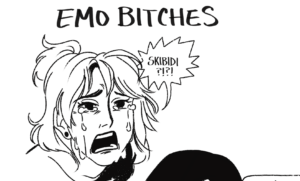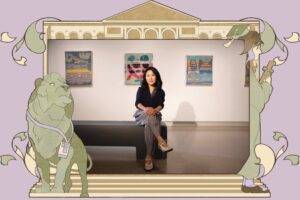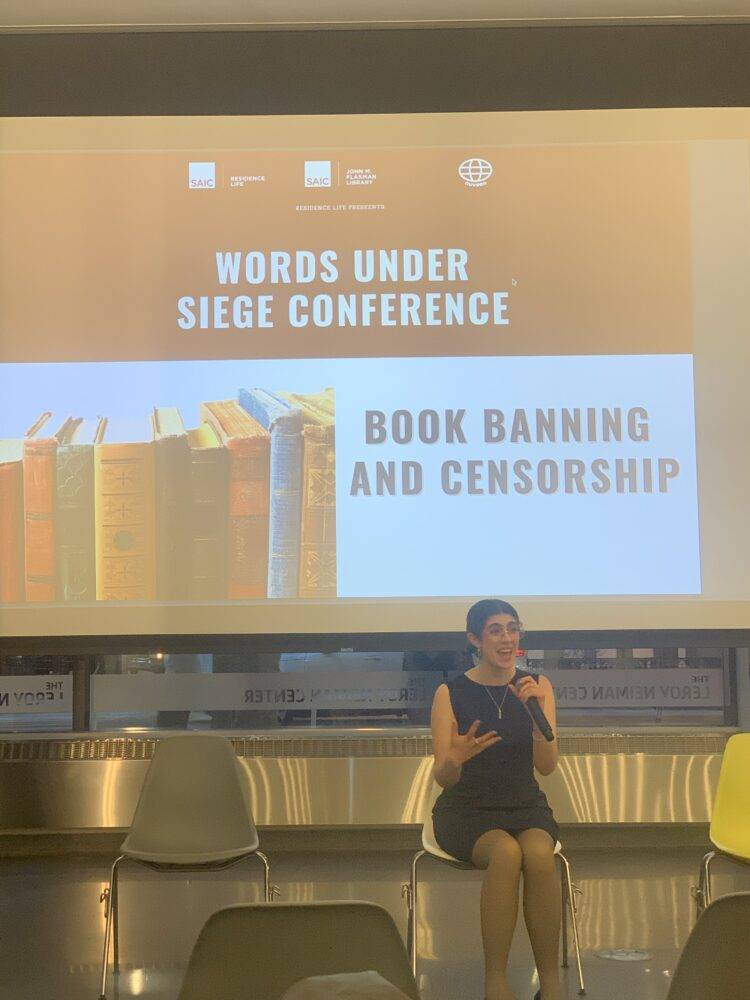
Over the past two years, there have been more than 10,000 instances of book banning in schools and public libraries across the United States. Though book banning is increasing, so are efforts to combat it.
PEN America, in their article “Banned in the USA: Beyond the Shelves,” defines school book bans as “any action taken against a book based on its content and as a result of parent or community challenges, administrative decisions, or in response to direct or threatened action by lawmakers or other governmental officials, that leads to a previously accessible book being either completely removed from availability to students, or where access to a book is restricted or diminished, either temporarily or permanently.”
The inaugural Words Under Siege Conference took place on Friday, Nov. 15, 2024, at the LeRoy Neiman Center at the School of the Art Institute of Chicago. The conference, which discussed book banning and censorship in America, was put together by Sisel Gelman, an F Newsmagazine staff writer.
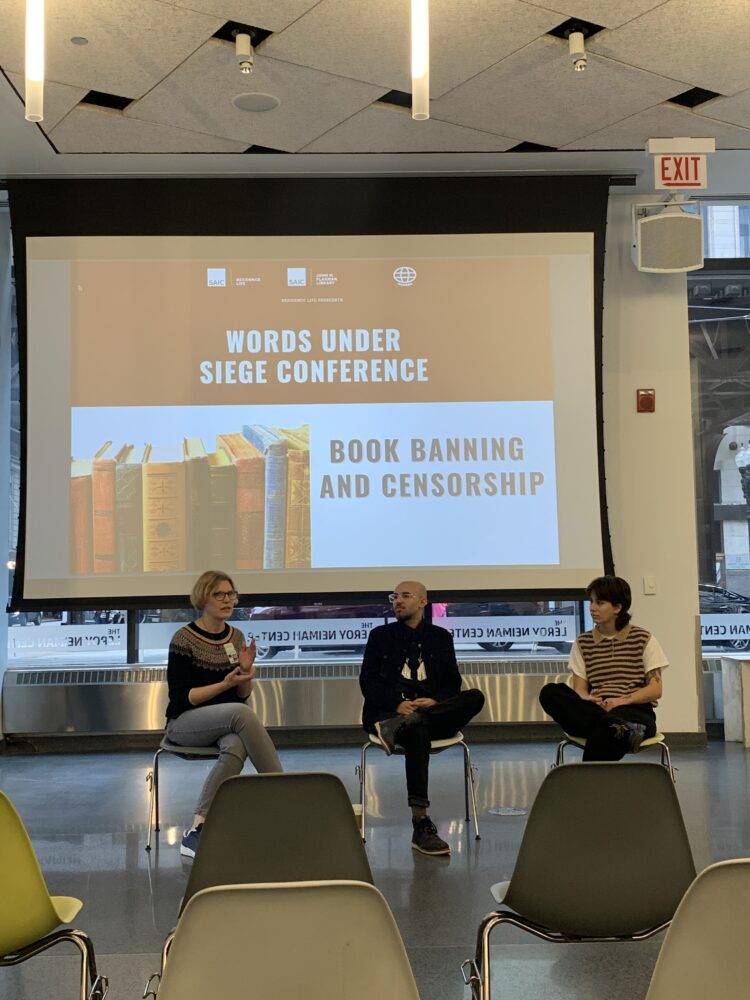
The event began with a panel discussion, “Honest Criticism to Fight Censorship,” with Chicago Review of Books managing director Rachel Leon, recent SAIC MFAW graduate Lawrence Scales, and Bella Netti, a DePaul University alum and co-curator of the “Do Say Gay: Banned Books and LGBTQ+ Freedoms” exhibit. The panel was followed by a Zoom call with PEN America’s Freedom to Read director Kasey Meehan and a keynote by award-winning author Michael Zapata. The conference concluded with a lecture, “Censorship in the 19th and 20th Century,” by Felicia Caro with the Chicago Public Library.
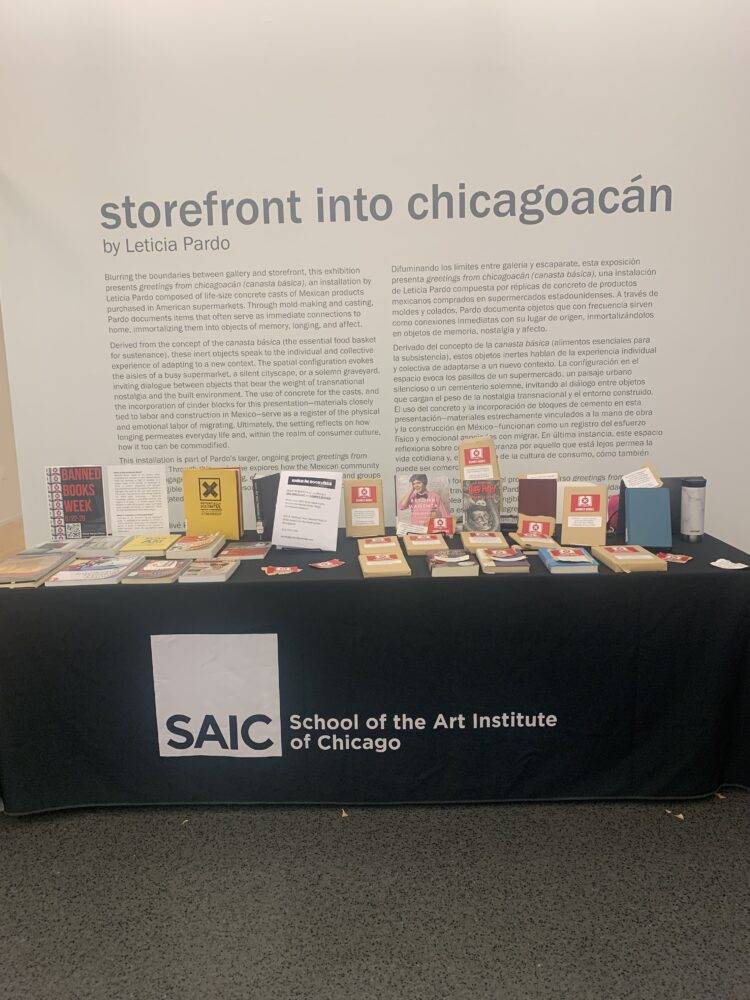
The John M. Flaxman Library produced a booth highlighting censored books and books about censorship. Censored books were wrapped in paper and labeled with important information, and visitors could guess the book based on the provided information before unwrapping them.
Subject matter is a major factor in banning books. PEN America has found that of the 1,091 most commonly banned books of the 2024 school year, 59 percent addressed grief or death, 57 percent mentioned sex and sex-related topics (something as common as menstruation is considered as sex-related), 44 percent featured characters or people of color, 40 percent addressed substance abuse, 39 percent included LGBTQ+ representation, and 38 percent referenced mental health disorders.
Organizers of the conference emphasized that book censorship is a form of erasure. They explained that when books about LGBTQ+ identities or the experiences of people of color are banned, we lose the ability to learn about experiences that differ from our own.
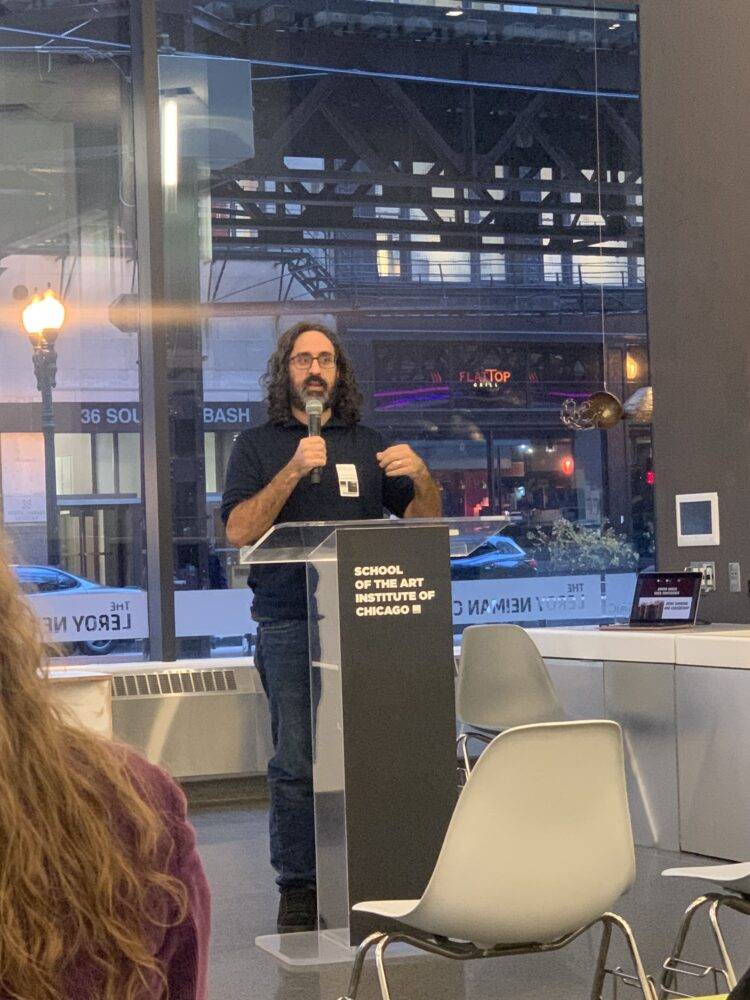
“We don’t just ban books, we ban people’s stories,” said Michael Zapata in his keynote.
While advocates for banning books may take legal action, there’s a more discrete form of censorship called soft banning. Soft banning involves self-censorship or speech suppression even when the book might benefit a group or community. This may look like a librarian taking down an inclusive table display due to a complaint, or a teacher emptying their classroom of books to avoid disciplinary action.
Regardless of how widespread book banning is, the organizers said that there are things we can do to combat it. According to Alex O’Keefe, the Research and Instruction Librarian at SAIC, the best thing you can do when a book is banned is raise awareness.
“A lot of people don’t even realize what books have been banned before,” said O’Keefe.
Resources are available at the library to help readers advocate for banned books, including letter writing to administrations or groups in affected areas.
The next step is to read the banned book and form your own opinion about the content and subject matter, advised Scales. Educate yourself on the tactics used by those who wish to ban books. Often, books containing sex or sex-related topics or LGBTQ+ identities and experiences will be targeted for being “obscene.” They are labeled pornographic. Books featuring people or characters of color are attacked for pushing “woke ideologies.” The organizers encouraged attendees to inform themselves on how certain labels and experiences are being weaponized.
“Acknowledge the flaws while elevating the work itself,” said Scales.
Honest conversations about books are how we preserve and protect readers and writers.



